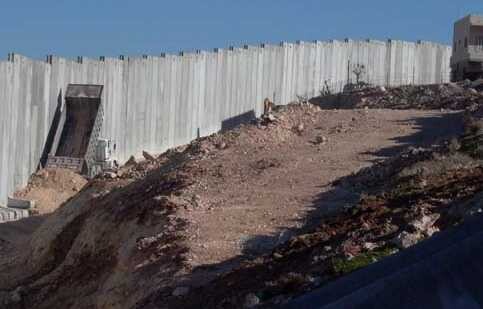5 May 2004

Construction of the wall around Jerusalem (Photo: Foundation for Middle East Peace)
A new report by international donors, which includes the United Nations, has found that a separation barrier Israel is building in the West Bank could cut off 12,000 Palestinians from their land, work and essential social services.
Israel began building the wall in 2002 in the context of continuing violence and terror attacks on its civilians. International donors to the Palestinians commissioned the report because of concern that it could harm Palestinian livelihoods and the viability of local economies, and might negatively affect the delivery of humanitarian aid and damage assistance projects.
The report recommends that donors should closely monitor the continuing construction, its impact and its implications for the Palestinian population, and that donors should provide assistance to affected communities and households.
The report was researched and written by a team of experts under the direction of the Local Aid Coordination Committee’s (LACC) Humanitarian and Emergency Policy Group, which includes the European Union, Norway, the United States, the UN Special Coordinator for the Middle East Peace Process, and the World Bank.
The report finds that in some places the wall is located as much as six kilometres inside the West Bank. When completed, as many as approximately 12,000 Palestinians could be left on the western, Israel-facing side of the wall, cut-off from their land, workplaces and essential social services.
To obtain land on which the wall is being constructed in the West Bank, Israel is requisitioning private property pursuant to military orders. Every landowner appeal to an Israeli military committee, and beyond that to the Israeli High Court, has been rejected.
In addition, the Government of Israel states that the construction of the wall is a temporary measure but its extent, nature and cost and, in particular its location inside the West Bank and east of the Green Line suggest to Palestinians that the project has more permanent implications.
The report notes that the 1995 Interim Agreement between the two sides states that neither party “will change the status of the West Bank and the Gaza Strip pending the outcome of the permanent status negotiations” and that “the integrity and status” of the West Bank and Gaza Strip “will be preserved during the interim period.” It adds that Israel argues that the wall is a temporary measure and therefore compatible with the Agreement.
Related Links